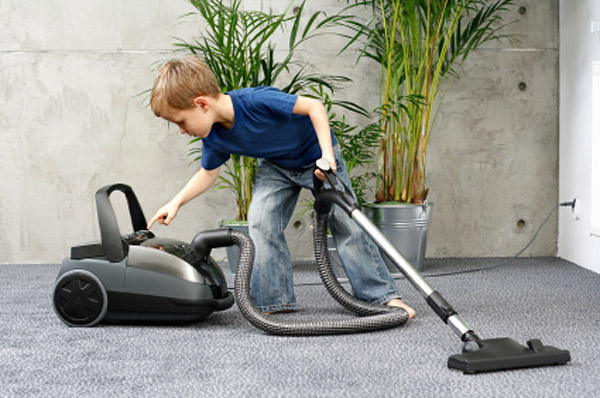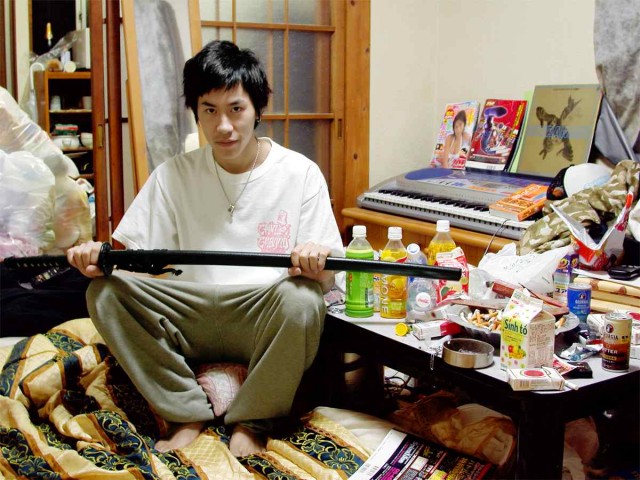(单词翻译:单击)
Japan has long had a reputation for being somewhat bizarre. Over the top TV programs, a keen interest in technology and a love of the odd has given the impression that Japan is a very different world compared to the West. While that reputation is a little unfair, a number of Japanese customs and practices can completely baffle any foreigners who happen to be traveling through Japan.
日本人长久以来都被冠以“怪异”的名声,通过著名电视节目展现出来的,拥有对科技的敏锐直觉和对古怪事物的高狂热度的日本人,较之西方,显得尤为不同。虽然这种印象稍显不公,但很多日本习俗和实例还是让很多去日本旅游的外国人感到困惑。
10.Banishment Rooms
10.“冷宫”
Many countries have strong labor laws that prevent companies from sacking employees without good reason. In Japan, this has led to a problem for large companies that want to get rid of certain people but can't fire them without paying out huge benefit packages.
许多国家拥有强有力的劳动法来防止企业毫无正当缘由地辞退员工,而在日本,这就给很多公司带来了麻烦,想要摆脱一些理应开除的员工,但又不得不付给他们巨额的福利。

The solution many have come up with, including the likes of Panasonic, Sony and Toshiba, is to use banishment rooms. Employees are sent to do tasks that serve no purpose or are mind numbingly boring. A prime example includes asking staff to stare at a TV monitor for up to 10 hours a day.The companies who employ this tactic hope that people will become so despondent from carrying out such menial work that they'll eventually quit. A voluntary resignation means that they're no longer entitled to benefits, saving the business money.
但问题很快就随之解决了,包括松下、索尼以及东芝在内的企业都采用了”冷宫“,即打发员工去做一些毫无意义或者枯燥至极的事儿。最好的例子就是让员工一整天去盯着电视达10小时以上。企业采用这种方式是希望这些员工在此类丢脸的工作中受挫从而为尽快脱身,最终选择离开。自愿辞职就意味着他们不能再得到福利,从而节省了企业资金。
9.No Janitors In School
9.校园无环卫

Children in the West are used to seeing janitors cleaning and carrying out maintenance tasks in their school. It's a necessary job due to the mess that kids have a tendency of leaving behind them.
西方小孩对于在学校里环卫工人清洗和搬运需保养的各类设备已是见怪不怪,因为这项工作是必需的,小孩们都有随手丢东西的习惯而把事情搞得一团糟。
That isn't the case in Japan though. Instead of employing someone to clean up other people's trash, the schools teach students to clean up after themselves. Dedicated time is set aside for children to work together to clean classrooms, scrub floors and keep the bathroom spotless. It also extends to eating lunch. Rather than a cafeteria, students eat in their own classroom with their teacher and hand out the food themselves.The idea is that all of this teaches a sense of responsibility and of working together — learning to be selfless rather than selfish. While these are definitely good morals to be teaching children, it's a practice that appears completely alien outside of Japan.
这并非是日本学校没有环卫的原因,相反,学校会教育小孩自己来打扫卫生,而不是雇佣环卫来做。学校会专门留出时间让孩子们共同劳作,打扫教室、楼梯间,并保持盥洗室一尘不染。甚至午餐也是如此,学生和老师会在教室分发食物,而不是去自助餐厅。这些都是为了培养孩子们的责任感和协作意识——懂得无私,而不是自私。当然这教会了孩子们良好的品德,也让日本较之其他国家变得与众不同。
8.Sleeping On The Job
8.工作时间小憩

Getting caught napping at work is something that generally gets you in trouble. Any boss would likely not be pleased to walk in on you sleeping when they're paying you to do a job. However this action, which is known as inemuri, is completely acceptable in Japan.
要是在工作过程中打盹你肯定就麻烦了,任何老板都不会乐意当要交付你一项工作时,却看到你在睡觉!然后这个众所周知的大忌,却在日本完全能够被接受。
The custom dictates that if you're sleeping at work it means you've been working so hard you haven't been able to get enough sleep at home. This leads employers to believe that the worker is simply exhausted as they're incredibly dedicated to their job.The practice has such positive connotations attached that some people even pretend to be asleep to gain favor. It seems they may be onto something — research from NASA has shown that a nap at work may well help you to work harder.
日本风俗表示,工作期间睡着了,那便意味着你忙过头了以至于都没办法在家好好睡觉,也让领导认为员工仅仅是极为专注自身工作所以这样筋疲力尽。这一行为富含如此正面的意义,以至于有些人甚至会装睡来骗取嘉奖。似乎一些研究已经表明,在NASA工作,小睡是会帮助你更加努力的工作。
7.Adult Adoption
7.成人收养

Adoption is carried out all over the world, but while the USA and Japan are at the top of the world when it comes to adoption rates, the type of adoption in Japan is completely different.
全世界都有收养规定,而提及收养率,美国和日本在则是名列前位,但日本式收养却截然不同。
An incredible 98% of all adoptions in Japan involve adults aged 20 to 30, the vast majority of these being men. If the owner of a family business doesn't have a son to keep the family name alive, a suitable heir will be found and adopted into the family. The custom is also employed if a father deems his son incapable of running the business. Companies such as Suzuki, Toyota and Canon have practiced what's called mukoyoshi.It's allowed family businesses to survive and thrive for much longer than would normally be the case. One example is the Zengoro Hoshi hotel, which the Guinness World Records list as the oldest family run business in the world at 1,300 years old. That's 46 generations.
令人难以置信的是,在收养人群中年龄在20~30岁的成人占了98%的比例,并且其中大部分为男性。如果一个家族企业的所有人没能有个儿子来继续发展他的企 业,那么他可以寻找一个适合的继承人并将其收为养子,并同样适用于该所有人不认为自己的儿子能够继续运营公司的情况。像铃木、丰田和佳能这些企业就是如 此,这些人被称之为”婿养子“。正因如此,一般情况下这些家族企业都会继承并继续发展壮大。其中就包括粟津温泉,是被吉尼斯纪录在册的现今世界范围内运营时间最久的家族企业,已运营1300年,历经46代。
6.Hikikomori
6.宅男

Over the past two decades, Japan has developed a unique phenomenon that involves young men locking themselves away and becoming entirely isolated. Agoraphobia manifests all around the world in many different cultures, but the problem in Japan is unique because of how widespread it is.
在过去的二十年里,日本创造了一种特殊的现象,就是年轻男子会将自己锁在家中并与世隔绝。不同文化背景下的”社交恐惧症“在全世界普遍存在,但在日本变得特殊是因为这范围实在太广泛。
So prevalent is the condition that there exist specialist facilities and counselors to help rehabilitate sufferers, whose number is estimated to be between 700,000 and 1 million. Men lock themselves away in small rooms and have almost no contact with the outside world, relying entirely on their parents to provide food. Cases usually last for several years but some have continued indefinitely, remaining isolated for over a decade.
即便目前普遍存在专业设备以及人员来帮助患者摆脱困境,但宅男人数仍保持在70万到100万之间。宅男们将自己关在狭小的空间内,几乎不与外界接触,完全依靠父母养活。一般这种情况只会持续几年,但也有不确定的,有可能会超过十年。医生和心理学家认为,由于日本文化与习俗,这个现象或许将变得十分普遍。在孩子未满30岁之前,父母都乐意照顾他们。并且认为这种孤立是有价值的传统。
编辑:青卉 来源:前十网


